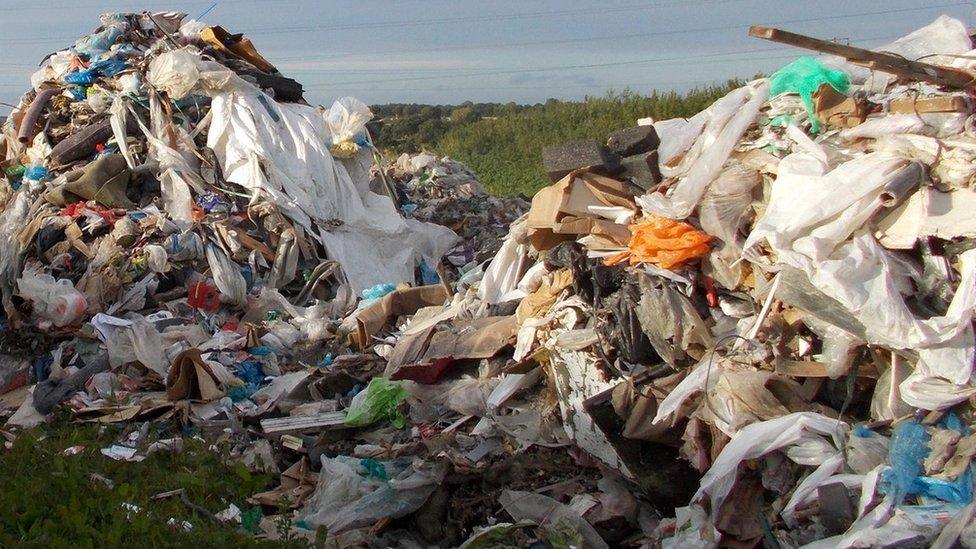The crime gangs cashing in by burying illegal waste
- Published
The crime gangs cashing in on illegal waste
Organised crime gangs are illegally burying thousands of tonnes of waste across Scotland, a BBC investigation has found.
Some of the rubbish is being brought up from the north of England by the gangs, and is believed to include hazardous clinical waste from hospitals.
Current affairs series Disclosure has been told that threats and intimidation are being used against landowners who refuse to allow waste to be buried on their land.
One claimed to have been threatened that their animals would be killed if they did not agree to let waste be buried on their land, while many others spoken to by the BBC were too scared to go on the record.
An insider from a criminal network told Disclosure that dumping waste had become as profitable as the drug trade.
Sepa, Scotland's environmental regulator, says its resources are being stretched by the gangs' activities.
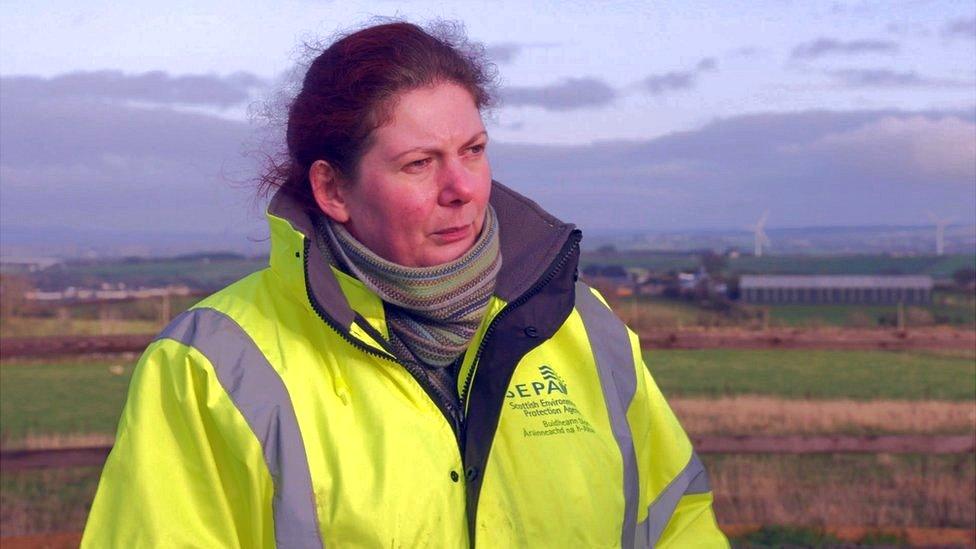
Kath McDowall is a senior investigator with Sepa
Kath McDowall, one of the senior investigators looking into the organised groups, said: "When people typically think of waste crime they think of small-scale fly-tipping and they don't quite realise it's happening on this scale."
She said the Scottish Environment Protection Agency was up against gangs who had been involved in running drugs and weapons for decades.
Ms McDowall said they had "taken lessons they've learned from doing other types of criminality and are now applying it to waste".
However, she said the resources that Sepa had to deal with the problem were "pretty finite."
The legitimate disposal of rubbish is an expensive business because of the cost of complying with tight regulations and landfill taxes.
Criminal gangs who bypass these costs have a massive advantage over legitimate traders.
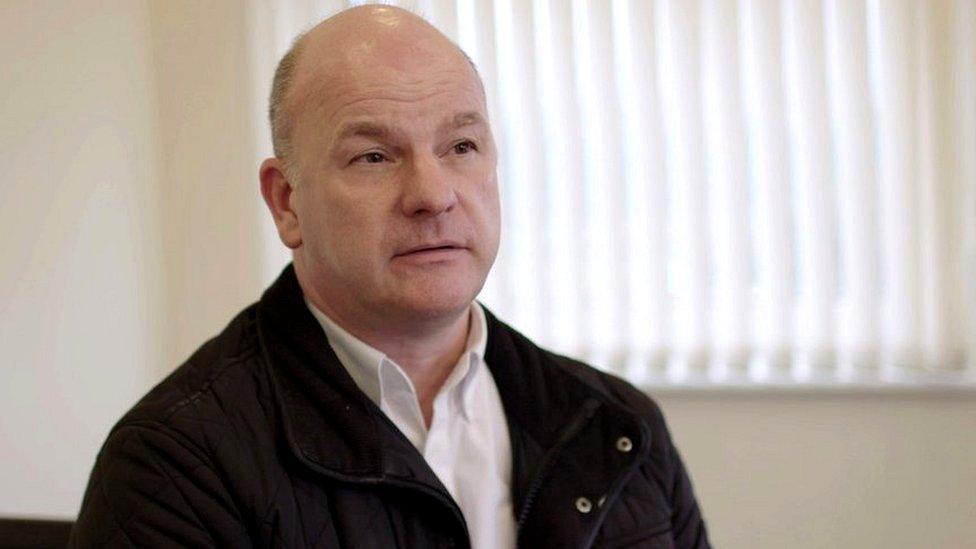
Drew Murdoch said there was a risk that some smaller legal businesses could fold
Drew Murdoch is managing director of J&M Murdoch and Son, a family-run waste business which has been operating legitimately for 50 years.
"There is now more of a criminal element in the waste industry than there has ever been before," he said.
"And that is largely due to the amount of money they can make out of illegally dealing with waste."
His company might make £50,000 from a £1m contract due to the costs of landfill taxes, insurance and disposing of materials correctly.
"An illegitimate firm or criminal enterprise could quote half of that and pocket pretty much most of the money," he said.
Mr Murdoch said there was a risk that some smaller legal businesses could fold or turn to criminality to compete.
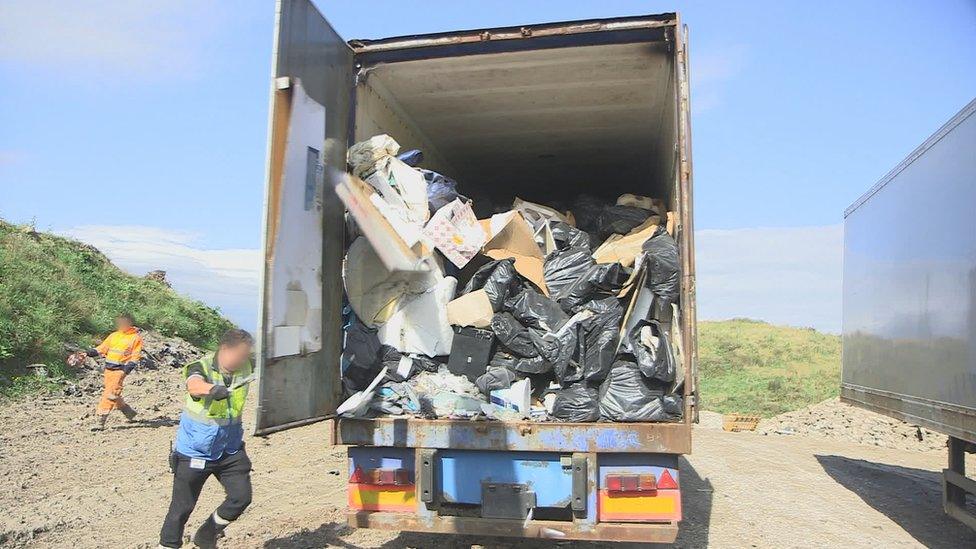
A trailer found abandoned at the side of the A73 in Lanarkshire was filled with domestic household waste
An insider from one criminal network involved in burying waste told Disclosure that waste was "the new drugs".
"It's an easy way to make money. It's completely hidden in plain sight - and the money from these waste gangs goes straight back into their organised criminal activities.
"It finances their drugs operations, their movement of weapons, people, whatever."
The insider claimed that one criminal gang from the north of England had multiple sites across Scotland which received waste driven up from England in lorries.
At one of these sites, the landowner would be paid £350 per lorry, containing a mixture of domestic and hazardous clinical waste. The site receives five lorries a day, five days a week, adding up to more than £8,000 a week for the landowner alone.
The insider said they knew that at least one of these sites had been operational for years.
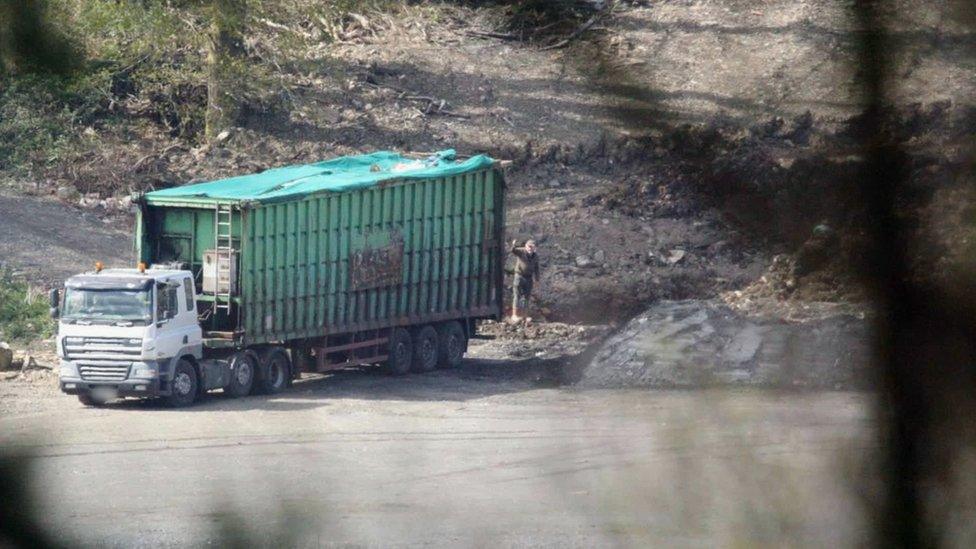
Surveillance photos show a criminal network from the north of England illegally burying waste in south Wales
The BBC has been told the criminal gangs are using a network of brokers to identify parcels of land in Scotland where they can bury industrial quantities of waste.
The brokers may identify landowners or farmers who they can either intimidate or pay to accept the waste.
One gang targeted two farms in south Wales where they buried tonnes of household rubbish as well as hazardous clinical waste from hospitals. Natural Resources Wales, the environmental regulator, discovered the waste included syringes, used dressings, and blood vials.
The same tactic is being used in Scotland, leading to one criminal network being actively investigated by Sepa.
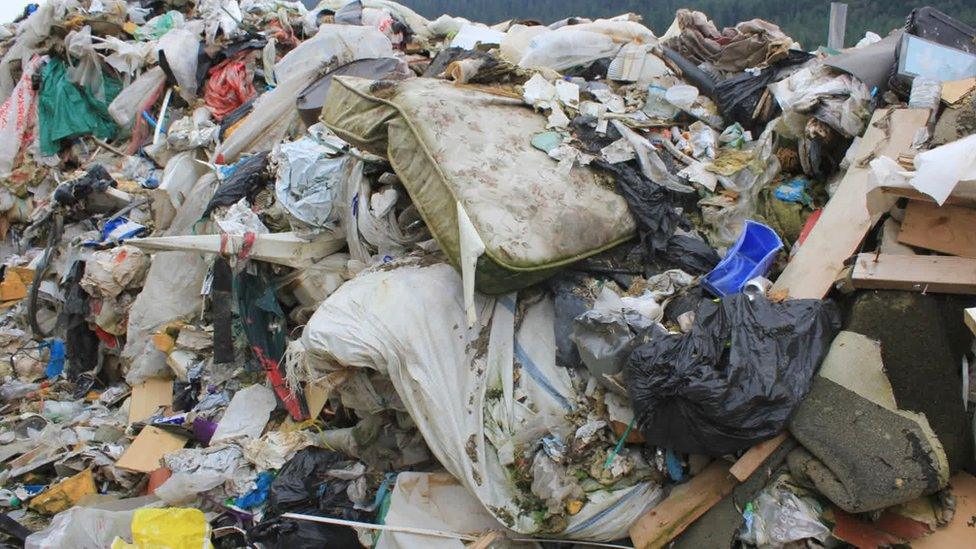
Waste like this - which was buried illegally in Wales - is now being brought to Scotland
Another method is to fill old lorry trailers with waste and abandon them in laybys and quiet streets around the country.
In the last 15 months, 12 trailers have been found across central Scotland - all of them filled with household and construction waste.
Elsewhere, a derelict farm near Port Glasgow, in Inverclyde, has been filled with an estimated 10,000 tyres.
One barn that is overflowing with tyres lies within a few metres of a housing estate. Tyres are classified as hazardous waste because of the polluting emissions they give off and their potential to catch fire.
And when Sepa investigated an illegal waste site in Lanarkshire, it found that methane emissions from buried rubbish brought up from England were 60 times the legal limit. Methane is a major driver of climate change.
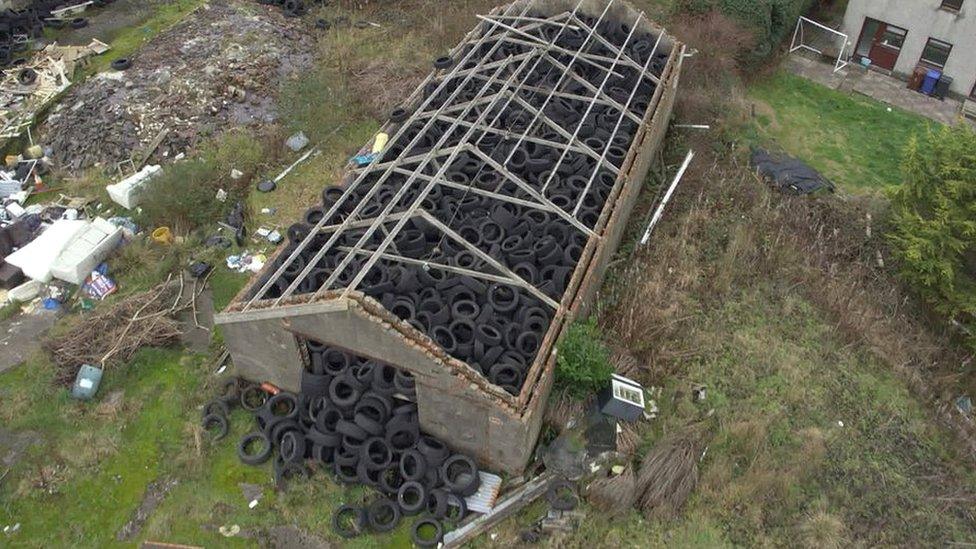
Thousands of tyres have been illegally dumped at a farm in Port Glasgow
Sepa does not have a specific clean-up fund, so it must redirect money from other environmental work when illegal dumps need to be cleared.
Its environmental investigators say organised crime has gained a strong foothold in the waste trade.
Richard Sinnott, an atmospheric scientist at Sepa, told the BBC it was an "increasing trend", and that he could not overstate how damaging it was to Scotland's environment.
Sepa is currently investigating 234 cases of waste crime. Of those, 31 are of the highest concern due to links with serious and organised crime or the potential for severe environmental damage.
The authority estimates that 15% of organised crime groups in Scotland now have interests in environmental businesses. These range from skip hire companies to waste hauliers and construction and demolition firms.
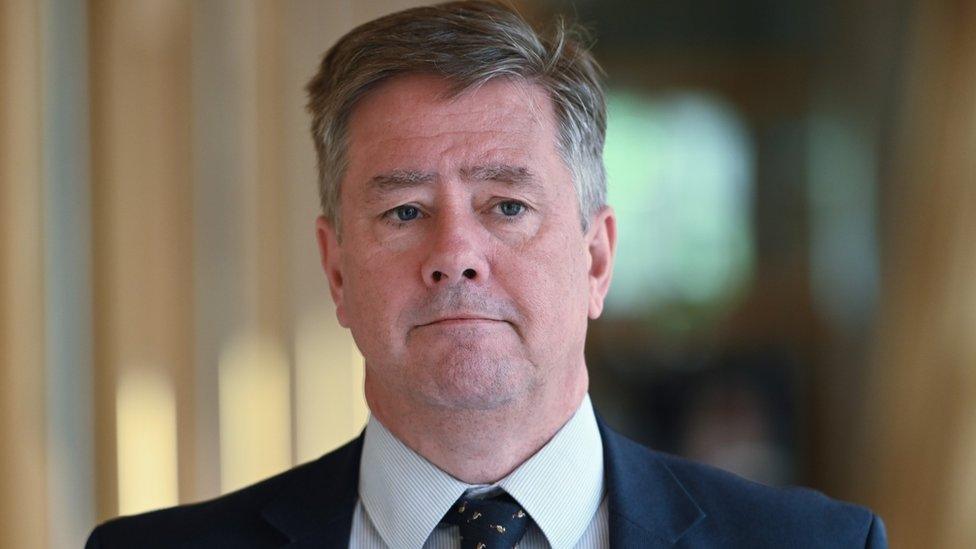
Justice Secretary Keith Brown said work was starting to have an impact on the problem
The Environmental Services Association last year estimated that criminality in the trade was costing the UK taxpayer more than £1bn a year.
Scotland's Justice Secretary Keith Brown chairs the Serious and Organised Crime Taskforce, which five months ago made waste crime its top priority.
He said he was aware of "a great deal of activity" in terms of waste coming across the border between England and Scotland.
He added: "The way that the environmental protection agency, our rural local authorities, and the police authorities, are working, is starting to make an impact on this serious problem."
Disclosure: Dirty Business is on BBC One Scotland on Monday 31 January at 19:00.
- Published4 October 2018
